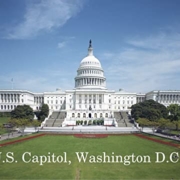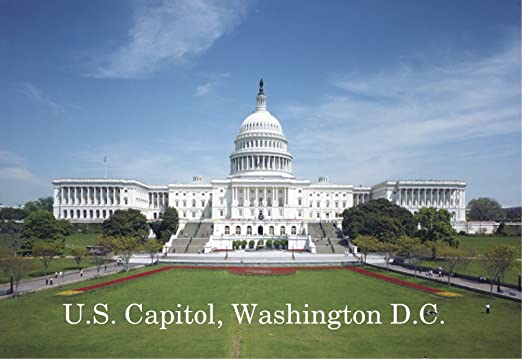We’re writing with delight to share news of a new interfaith collaboration happening at CBI.
“..Our ancient spiritual ancestors couldn’t sing the Song until they felt emunah in their bones. And they couldn’t feel emunah in their bones until they stepped into the sea. Which means they had to step into the sea before they felt ready. They had to take the plunge without knowing for sure what lay ahead and whether or not the water would part. On a smaller scale, we all have moments like that, on the cusp of change: marriage or divorce, birth or death, choosing a new beginning. There’s a moment when we have to decide to just – step into the sea, ready or not….”
This year, the b-mitzvah students and I are studying Jewish values. At the start of the school year we focused on teshuvah, repentance or return — the value at the heart of the Days of Awe. After that, we began a unit on b’tzelem Elohim: the idea that we are all made in the image of God.
This guest post is the D’var Torah that CBI member Ziva Larson offered at Shabbat Morning Services on Saturday, August 27, 2022.
My heart keeps breaking at the news emerging from the Supreme Court.
We knew that the end of Roe was coming. It’s still a shock to the system, and portends a tremendous amount of suffering to come. Countless people will suffer and die because of today’s ruling, and we know that the consequences will be most dire for people of color and for those without the fiscal resources to travel to “safe” states where abortion is available.
Dear Congregation Beth Israel members and friends,
It is rare to know that we are living through a moment of genuine historical significance. To recognize that something unfolding around us will be chronicled in books as a turning point of some kind, though we can’t yet know where this turn will lead. But here we are. We will not soon forget the sight of an angry mob, incited by falsehoods, storming the nation’s Capitol.
When Congress re-convened last night, Senator Chuck Schumer spoke about the desecration of our temple of democracy. His use of that metaphor evoked our Chanukah story about our holy temple, first desecrated and then rededicated for sacred use. And I remembered again Chanukah’s message of light in the darkness, and the steadfast hope that can carry us through.
I know that many of us are feeling stunned, horrified, and even frightened by what just happened in Washington DC. If that’s you, know that you are not alone. Know, also, that I am holding each member of our extended community in my prayers and in my heart, and that I am here to listen if you need an ear and to pray with you if that would bring you comfort.
When the dust clears, our task will be the same as it ever was. As Representative John Lewis z”l (of blessed memory) taught, democracy is not a state, it’s an act — an action, a choice, something we do. That teaching feels very Jewish to me. After all, Torah exhorts us to care for the vulnerable, to love the stranger, and to pursue justice: all actions, all things that we do.
Democracy is an action. Love is an action. Justice is an action. Standing up for truth is an action. Building community is an action. These are our work, now as ever. This moment invites all of us to recommit ourselves to those holy tasks. And it invites us to create and strengthen our community by reaching out to each other in these uncertain and overwhelming times.
One thing we don’t have to do is stay glued to 24/7 news coverage. Please take care of yourself. I recommend sticking with trusted media sources and giving yourself permission to turn away if the news is causing harmful anxiety. What happened yesterday is horrifying… and we are safe here, and I hope and pray that our democracy will emerge from this stronger than ever.
May the coming Shabbat bring nourishment to our souls and balm to our weary hearts. May we take comfort in our connections with each other. And may we be inspired to work toward healing for our precious democracy, so that our nation may continue to grow toward the promises inherent in its founding, promises of human dignity and justice for all.
With blessings,
Rabbi Rachel
A d’varling for Pride Shabbat and Shabbat Korach.
In this week’s Torah portion, Korach, there’s a rebellion. Korach stands up against Moses and demands power. He cloaks his demand in words that sound nice — aren’t all God’s people holy? — but it becomes clear that he doesn’t want to democratize spiritual power, he wants to claim it for himself and his sons. So, the earth opens up and swallows Korach and his followers.
Korach insists he deserves to be in leadership, but he really wants power. He doesn’t want to be a public servant, he wants to be a bigshot. Torah offers us this fantasy: what if the earth swallowed the power-hungry? Imagine what a world we could build if all of the Korachs just disappeared! We can’t rely on that. But maybe it can help us envision what ethical leadership really is.
God instructs Moses to take a staff from the leader of each of the 12 tribes and put them all in the Tent of Meeting overnight. In the morning, Aaron’s almond-wood walking stick has flowered and borne fruit. With that, the rebellion is truly over. Everyone can see who God has chosen to be in spiritual service to God and to the community. The question for me is: why Aaron?
Pirkei Avot 1:12 says, “Be like the students of Aaron: loving peace and pursuing it.” During homeschooling earlier this year, my son and I read some Pirkei Avot together. I asked him what he thinks the difference between those two things might be. “You can love something, but not do anything to make more of it,” he said. “Pursuing it means running after it, trying to make it happen.”
Tradition holds that Aaron pursued shalom (peace) and shleimut (wholeness). That’s why his staff was blessed to flower: because he actively pursued shalom. But what is peace, really? It can sound kind of wishy-washy. It can sound like a band-aid we put over community divisions and injustices in order to ignore them. That’s a false peace, a spiritual-bypassing peace.
Shalom and shleimut don’t mean the absence of war, and they don’t mean that false peace, the band-aid that papers over injustice. They mean integrity, living in alignment with what’s right. In Rabbi Brad Artson’s words: “Shleimut, wholeness, means offering to the world the fullness of who you are at your best: your beauty as you are, your greatness as you are.”
Reading those words this week, I was struck by how right they feel for Pride Shabbat. Coming out likewise means offering to the world the fullness of who one is. And as Rabbi Artson continues, shleimut also means inviting others to live out their truest selves too. When we stand in our truth and let our authentic selves shine, we give others permission to do likewise.
Aaron pursued peace. That verb also appears in the verse, “Justice, justice shall you pursue.” As my kid reminds me, pursuing means taking action. When we act for justice, we lay the groundwork for peace. Today’s protestors say “No justice, no peace.” I’ve also seen signs that say, “Know justice, know peace.” When we know justice inside and out, then we’ll know shleimut.
Justice means equal rights for everyone: for people of every gender expression and sexual orientation, people of every race and ethnicity. Justice means safe access to healthcare for everyone: including queer and trans people and people of color. Justice means equal treatment under the law for everyone: for queer and trans people, and for people of color, and for all of us.
Justice means fundamental human rights and dignity for everyone, because we’re all created in the image of God. These are core Jewish values. Our world doesn’t quite live up to them yet. We still have a lot of work to do before everyone can safely know shleimut, the wholeness that comes from offering the world the fullness of who we are. That work is our calling as Jews.
Korach said we’re all holy, but he really meant: I want more power for me and those who are like me. We can be better than that. We can build better than that. And when we do, then we won’t need to fantasize anymore about the earth swallowing the power-hungry. And then structures that had seemed wooden and lifeless will flower and bear fruit. As Judy Chicago wrote in 1979:
And then all that has divided us will merge
And then compassion will be wedded to power
And then softness will come to a world that is harsh and unkindAnd then both men and women will be gentle
And then both women and men will be strong
And then no person will be subject to another’s willAnd then all will be rich and free and varied
And then the greed of some will give way to the needs of manyAnd then all will share equally in the Earth’s abundance
And then all will care for the sick and the weak and the old
And then all will nourish the young
And then all will cherish life’s creaturesAnd then everywhere will be called Eden once again.
This is the d’varling that Rabbi Rachel offered at Zoom Kabbalat Shabbat services on Friday night (cross-posted to Velveteen Rabbi.)

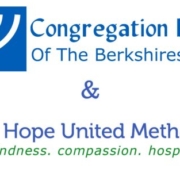
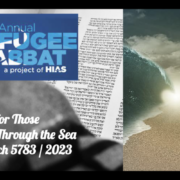
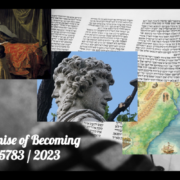
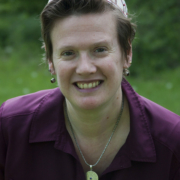
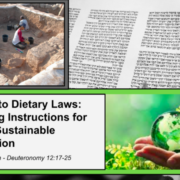
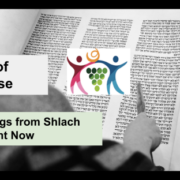
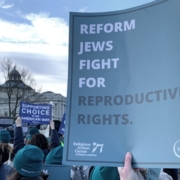 https://rac.org/blog/take-action-stand-abortion-rights-following-leaked-dobbs-v-jwho-decision
https://rac.org/blog/take-action-stand-abortion-rights-following-leaked-dobbs-v-jwho-decision